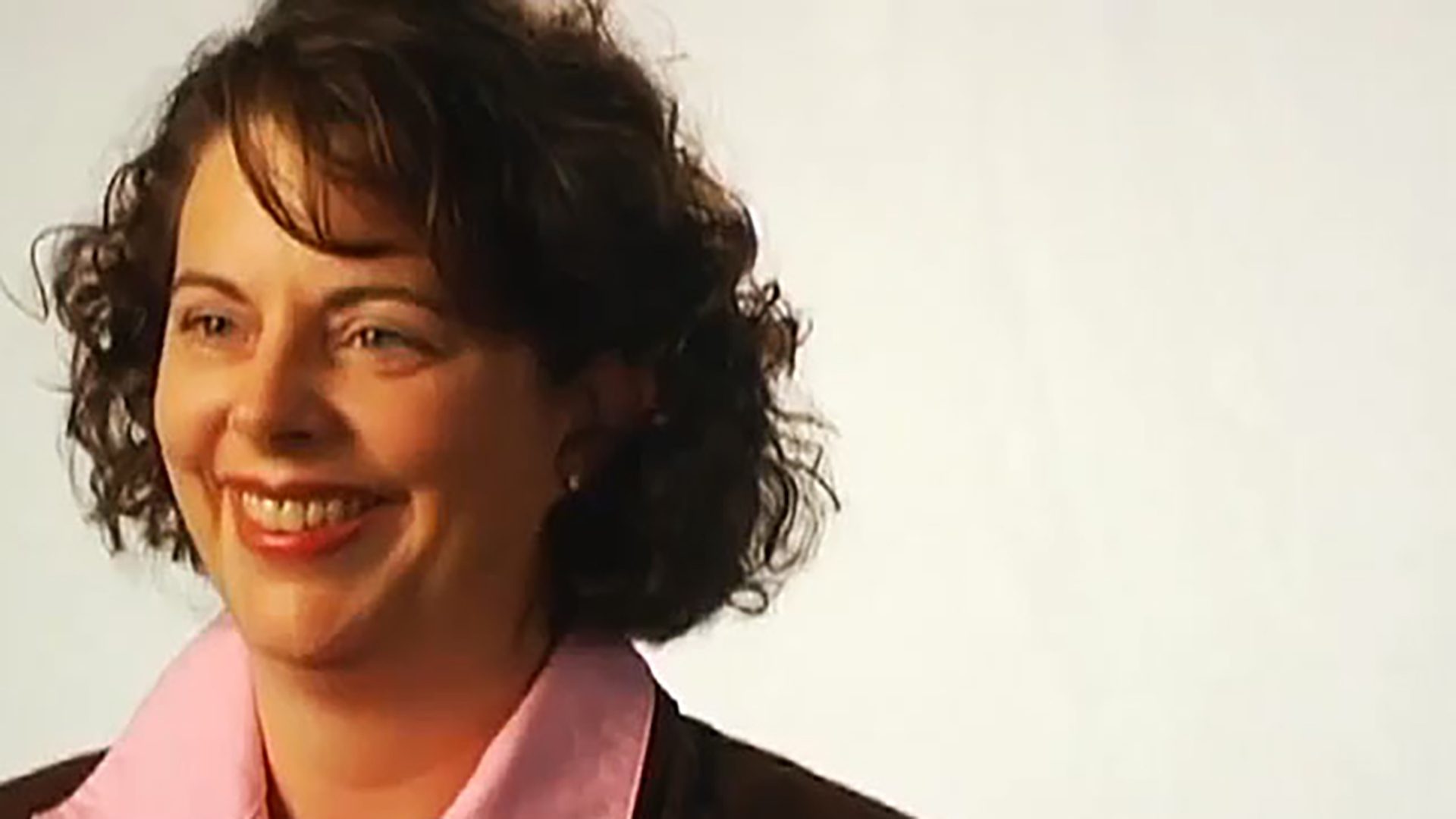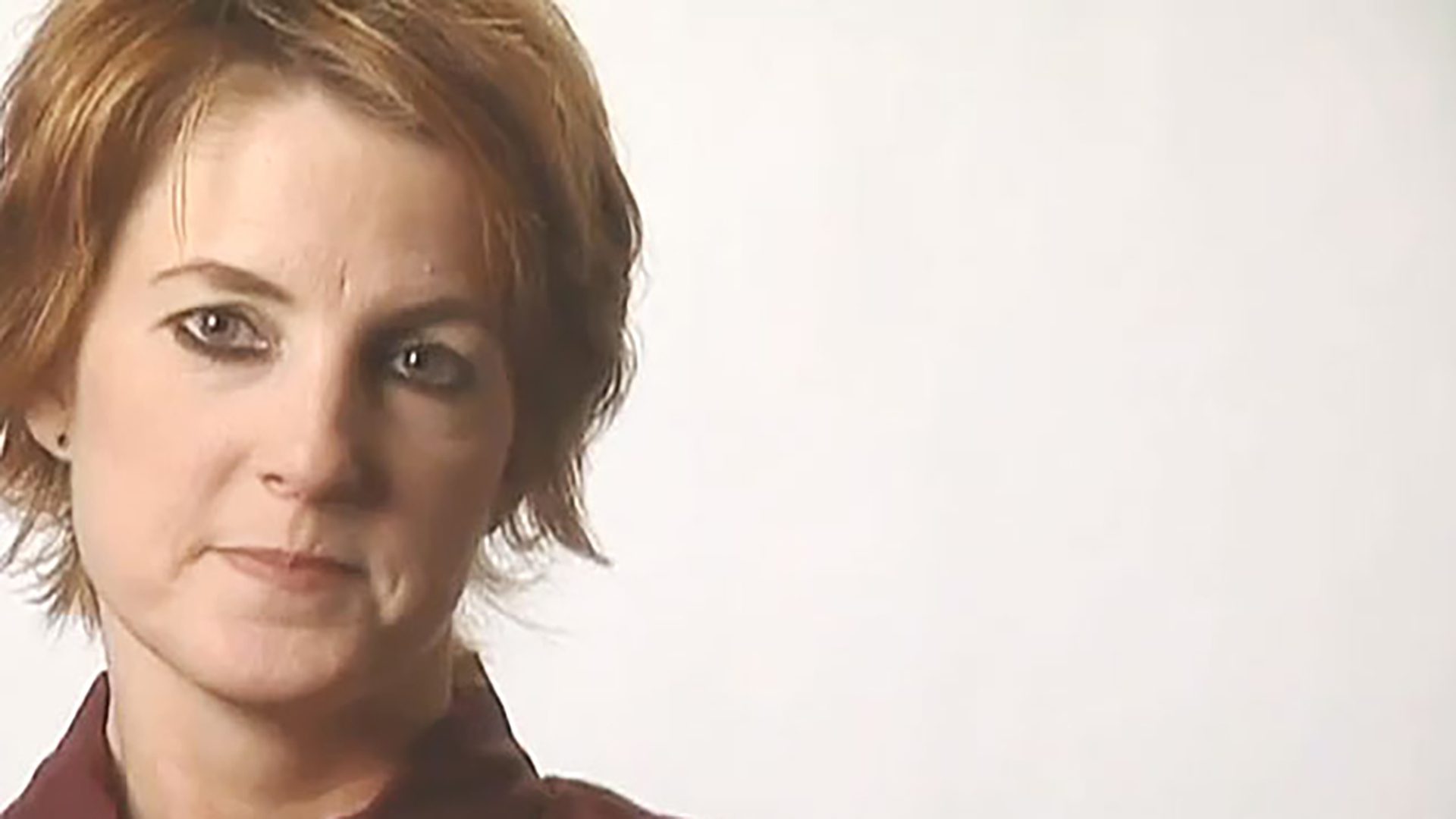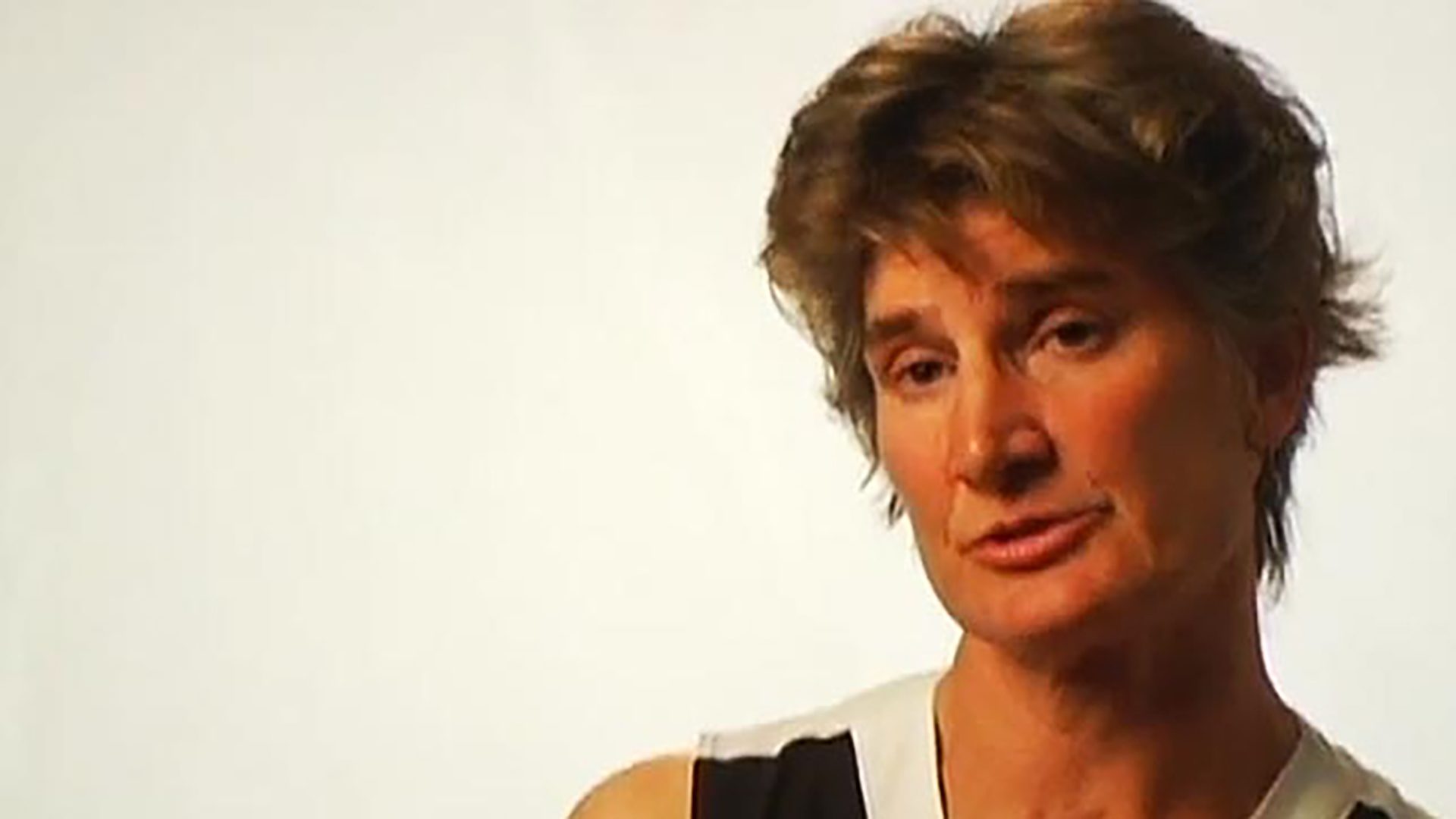Survivor Interview – Jenny D.
Jenny is an appendix cancer and thyroid cancer survivor. She discusses living with uncertainty, incorporating exercise into her life, and relationships with her family.

In June of 1996, I was not feeling well and actually thought I was pregnant because I was bloated. I went into my Ob-Gyn, did a pregnancy test, and it came back negative. But they could tell there was something going on, so they sent me right over to have an ultrasound done. My Ob-Gyn said, “You’ve got this mass on your ovary. I don’t know what it is, but we need to go in, look at it, and remove it.” At that time, they were thinking ovarian cancer because that’s how that presents itself. A week later, I was having surgery. It was cancer of the appendix, which happens to be very, very rare. They went in and removed all the tumors that I had. I had a complete hysterectomy. They removed some other tumors off my stomach, diaphragm and omentum, cleaned me up, and sent me on my way. We decided not to do chemo because statistically, it didn’t show one way or another that helped or not.
A year later, I had a recurrence. I went in and had my spleen and gall bladder removed because I had tumors on those. I did do chemo and it was pretty brutal. Then a year later, I had another recurrence. It was mainly fluid that was building up in my abdominal cavity, but the fluid had the tumor cells in it. I did another round of chemo, which was great. I kept asking the nurses if they were giving me water instead of chemo because it was so much easier than the other round. That was five years ago since I’ve had any treatment or any signs of reoccurrence.
In November of 2003, I noticed a lump in my neck. I had read a women’s health magazine that said one of the most common cancers in women between the ages of 40 and 60 is thyroid cancer. One of the tests you can do at home is to drink a glass of water, tilt your head back, and look in the mirror. If you see any bulges below your Adams’ Apple, you should probably have it checked out. Just for fun, I decided to do that, and there was a bulge there. We had an ultrasound done, and surgery. It was a cancerous tumor. That was eight months ago, and I didn’t do any follow-up treatment after that because the thyroid oncologist really felt like he had removed the whole tumor and removed half of my thyroid. There were no visible signs of anything on the other side.
I decided after the first surgery I had, I was not exercising at all. The second surgery I had and after that round of chemo, I still wasn’t exercising. By the time I got done with that, I thought, “I have to start something because if I have to have more surgery, I need to be strong enough to recover quickly. More quickly than I have.” I didn’t want to be laid up for any longer than I had to be. I started trying to exercise by myself. That doesn’t work so swell sometimes. So I decided that I was going to work with a personal trainer. I hoped that that would motivate me to go see her at least two days a week, and then motivate myself to do at least two other days a week of something on my own. I’ve been doing that for four years now. I get two days of exercise in very faithfully. Probably six months out of the year, I get four to five days in. Once summer comes around and the kids are home, it’s a whole different ball of wax. I figure I get my exercise by driving them everywhere.
We have two kids. Sean was four, when I was diagnosed in 1996, and Brenna was six. On the days that I was feeling just horrible, they were the reason that I got up and started moving around, that could only help me feel better. There were some days when they would come home off the bus, and I would have been in bed all day. But I knew the bus was coming at three o’clock. If I did nothing else that day, I got up and sat on the couch, and I watched for them in the window. They came home, and they told me about their day. And I said, “Mom’s had a really long day. I need to go take a nap.” Whereas, I’d only been up for 20 minutes, but I tried to make sure it was those 20 minutes when they could come in and see me sitting up instead of coming home and peering around the corner to see me laying in bed. It was little steps like that. The next time, it was maybe 22 minutes and then the next time, it was 25. Gradually, I was able to stay up longer, get up in the morning, take my nap in the afternoon and then get up again, and I’d be up until dinnertime. They were my reason to live strong.
Pat and I decided that right away, we were going to be upfront about what was going on because when I had my first recurrence, my son was in kindergarten and my daughter was in second grade. I didn’t want them to be out on the playground and hear someone say, “Your mom has cancer and she’s going to die.” So we said, “I’ve got this thing. It’s called cancer. Some people die from it; some people don’t.” My mom is a breast cancer survivor, and she was diagnosed when she was 42. She’s 76 now. We said, “Grandma Eleanor had cancer, and she didn’t die. Grandpa Dwyer had cancer, and he’s still around, but some people do get very sick because the medicine that they give you makes you not feel very well. So for a little while, I’m not going to be feeling well.”
Each of the kids handled it very differently. Our son, Sean, really didn’t want to have anything to do with it. If I was in my bedroom when he came home from school, he would come in and peer around the corner to see if I was there or not. My daughter, Brenna, would sit and do her homework in the bedroom with me. She wanted to be there, whereas Sean didn’t want to, which was fine. He was six. He shouldn’t have been right there. Over the eight years, we’ve talked about it and it comes up. We don’t sit around and make it dinnertime conversation, but we’ve talked about it.
Menopause was great. I went through menopause when I had my first surgery. To not have a period is wonderful. I have not had any problems with menopause. I started taking estrogen right away when I was diagnosed and after I had my hysterectomy. But for me, it hasn’t been a problem. I’m on estrogen only, so I know that there’s been a lot of discussion out there about estrogen and breast cancer. With my mom being a breast cancer survivor, that was an issue that we talked about with my doctor. However, I figured at 34, this was something that my body was going to have in it anyway. I decided that when my older sister started going through menopause, then I would rethink my estrogen therapy. For a 34-year-old woman to be without estrogen, some of the benefits of it, for me, far outweighed the risks. I don’t plan to be on estrogen therapy forever. At that point, I’ll decide when I’m going to start going through menopause again. Any time that I’ve had a hot flash breakthrough, I’m on the lowest dose possible of estrogen, and I’ve been able to work through it with the Chinese herbs. At some point when I get older, I will rethink the estrogen therapy. But for now, it’s something that I do and that I haven’t had any problems with.
I do live with uncertainty. For a long time, I didn’t want to call myself a survivor because I felt like if I put myself in that category, that means I’ve won or beat it. I don’t think about it every day but I think about whether or not it’s going to return again. With cancer of the appendix, it’s a slow growing kind of cancer, so it can start to recur but it can take a while. Even though I’m five years out from not having any treatment or having any other recurrences, there have been cases where ten, fifteen years later it has come back. So you don’t really ever feel like, “Shoo, got through that.”
Livestrong means that I can, through my cancer diagnosis and survivorship, face each day now with a renewed effort to live. I Livestrong by exercising, by keeping my health. By making sure that if I ever have to go through any other treatment, I am as strong as I possibly can be. I think I Livestrong by trying to be a good mom and trying to be a good little wifey. I Livestrong by being here to help other people out. I decided that if I could help just one person through my experience, it will have all been worth it. Every single minute of it was worth it to get someone else through it.
I am Jenny Gore Dwyer, and I am a survivor of cancer of the appendix and cancer of the thyroid.

